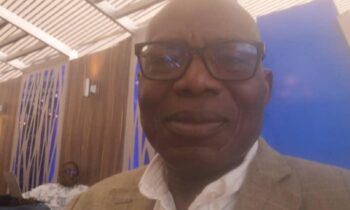
The removal of fuel subsidy could happen in June 2023 when a new government administration comes into office by May 29. Some experts have argued that subsidies will always exist in society. However, some commodities and services should be left at market prices like electricity, fuel or gas.
One such expert is Dan. D Kunle, an Energy Analyst the former Senior Technical Adviser to the Minister of Energy Gas from 2007 to 2009, who recently said that a blanket fuel subsidy regime from the center, is wrong and that is why the system is not working and subsidies are better targeted at certain groups of people who need the service but may not afford it.
In this interview, he addressed the issue of social welfare programs being a buffer for fuel subsidy removal and more.
How should the Buhari administration handle the fuel subsidy palliative scheme targeted at the Nigerian masses?
Dan D. Kunle: Officials of the Muhammadu Buhari administration may not be able to effectively distribute palliatives because they have limited time now to go. In my mind, if they remove the subsidy within the next two months, the Buhari administration cannot provide those palliatives because their tenure is almost over. The incoming administration needs to start creating the palliative framework from June onwards. So that Nigerians are aware that there are palliative schemes in their localities even if they are paying higher for petrol.
Such palliatives should include more investments in mass transit, basic health, water supply, primary/secondary education, across the country. Since this money accrues on a daily basis as we sell petrol at the market price. That means the government has to capture a part of that money and put it into the mentioned palliatives. If that money is to be shared between the three tiers of government, there should be an agreement during the National Economic Council, that the state and local governments will use the money saved from fuel subsidy removal, to improve on the palliatives earlier mentioned. Part of that money should also be invested in security, safety, and road development and used to improve teachers’ pay, as well as health workers’ pay.
What sort of approach should the implementation of these palliatives take?
Dan D. Kunle: It should take an integrated approach involving the Federal, state, and local governments. If the federal government can decentralize and democratize the natural resources of the country, it means that the deregulation and removal of fuel subsidies will now bring about new revenues that the federal government has been sitting on called subsidies. That new revenue will now accrue to the three tiers of government. The federal government alone should not control the revenue stream created by the removal of fuel subsidies. Deregulation means democratization, the federal government does not control drinking water or beer, we still have a lot of work to do in understanding the running of a democratic federal republic, apparently. You cannot control one product like that from the center, it is a problem.
When is the perfect time to establish welfare programs to ease the burden of Nigerians following the removal of fuel subsidies?
Dan D. Kunle: Immediately the new government comes in, they should review all the existing interventions and social programs. They should review them and dissolve some of them and transfer others to the state and local government to implement them. The concentration of welfare programs at the center is wrong and a waste of resources. They should all be moved to the state and local governments, there are ministries and departments that can handle social welfare programs at the state and local levels. The center has become too concentrated, with a multiplicity of agencies and federation money being used to fund them. Any welfare initiatives should percolate to the states and local governments. So that people can go to their state or local government to ask for their rights, not looking up to Abuja for everything.
What sectors do we need to subsidize and make cheaper for Nigerians after removing fuel subsidies?
Dan D. Kunle: Basic/secondary health, basic/secondary education, agricultural produce, and inputs can be subsidized as well. We must also try to subsidize basic transportation systems in some states. The BRT bus system in Lagos state is a good model that can be replicated across Nigeria. These are subsidies that can be scientifically managed. At the state and local government level, you can calculate how many people use these buses every morning or afternoon, as well as the level of traffic at both times. We have smart people who can work out the economics and the mechanism through which all these factors can be properly tackled at the state and local levels.
In the same vein, a good medical Director in a state can tell you how many drugs are required for each primary healthcare center located in the state. The state can have a central store from where items are moved to all the primary healthcare centers as needed. It is not the federal government that should run all the programs from Abuja to each local government area. It is wrong. These things seem impossible because we have allowed the destruction of the system through stealing and inefficiencies.
Some have alleged that the fuel subsidy regime is riddled with corrupt practices. How do we ensure a corruption-free oil and gas sector in Nigeria?
Dan D. Kunle: I don’t like the word “corruption”. I believe it has been abused in Nigeria. It is inefficiency and incompetence that have led to the mismanagement of our natural resources and the incoming government needs to address these challenges. Nigeria’s oil and gas sector must be further deregulated. Allow people who have been investing in oil and gas to consolidate and optimize their investments. A private business owner that has invested money in establishing a fuel station and invested funds in underground tanks, pumps, and others is edged out of business by NNPC Retail, which has used free money from the government, to establish a fuel station located opposite the fuel station owned by the private business owner, and names it NNPC fuel station, thereby bankrupting the business. This is not a level playing ground and it is not how to manage the oil and gas sector.
The private downstream sector owns more fuel stations, tank farms, and underground storage facilities than the government-owned companies in the country. Despite the billion liters capacity of storage facilities owned by private individuals across the country, there are no products in many of them, yet the government-controlled entities are building fuel stations to compete with private owners. It is wrong. The incoming administration should free up the domestic market. We need to democratize the retailing of fuel, also the supply of fuel must be deregulated in this country.




